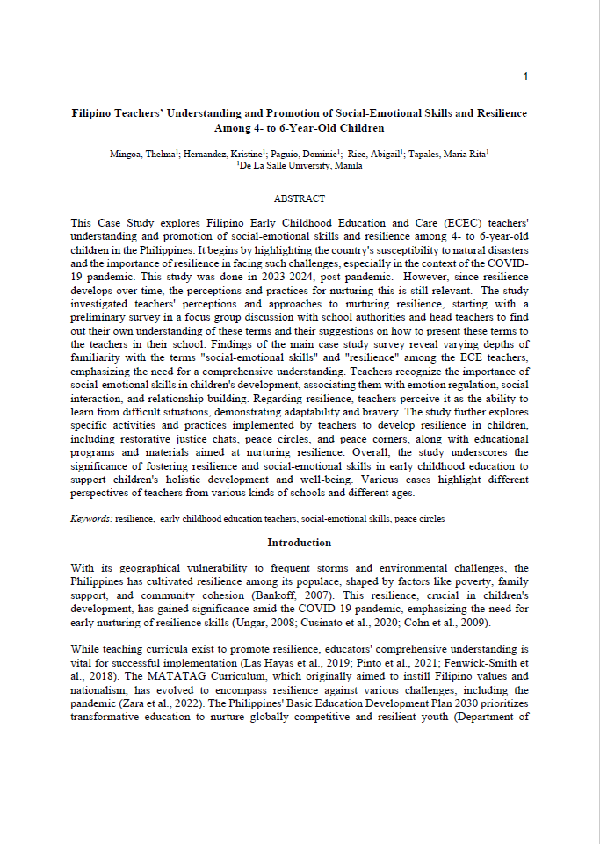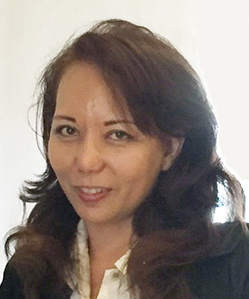 |
Abstract
This Case Study explores Filipino Early Childhood Education and Care (ECEC) teachers' understanding and promotion of social-emotional skills and resilience among 4- to 6-year-old children in the Philippines. It begins by highlighting the country's susceptibility to natural disasters and the importance of resilience in facing such challenges, especially in the context of the COVID-19 pandemic. This study was done in 2024, post pandemic. However, since resilience develops over time, the perceptions and practices for nurturing this is still relevant. The study investigated teachers' perceptions and approaches to nurturing resilience, starting with a preliminary survey in a focus group discussion with school authorities and head teachers to find out their own understanding of these terms and their suggestions on how to present these terms to the teachers in their school. Findings of the main case study survey reveal varying depths of familiarity with the terms "social-emotional skills" and "resilience" among the ECE teachers, emphasizing the need for a comprehensive understanding. Teachers recognize the importance of social-emotional skills in children's development, associating them with emotion regulation, social interaction, and relationship building. Regarding resilience, teachers perceive it as the ability to learn from difficult situations, demonstrating adaptability and bravery. The study further explores specific activities and practices implemented by teachers to develop resilience in children, including restorative justice chats, peace circles, and peace corners, along with educational programs and materials aimed at nurturing resilience. Overall, the study underscores the significance of fostering resilience and social-emotional skills in early childhood education to support children's holistic development and well-being. Various cases highlight different perspectives of teachers from various kinds of schools and different ages.
Keywords: resilience, early childhood education teachers, social-emotional skills, peace circles
Read full report



 Thelma Mingoa
Thelma Mingoa










